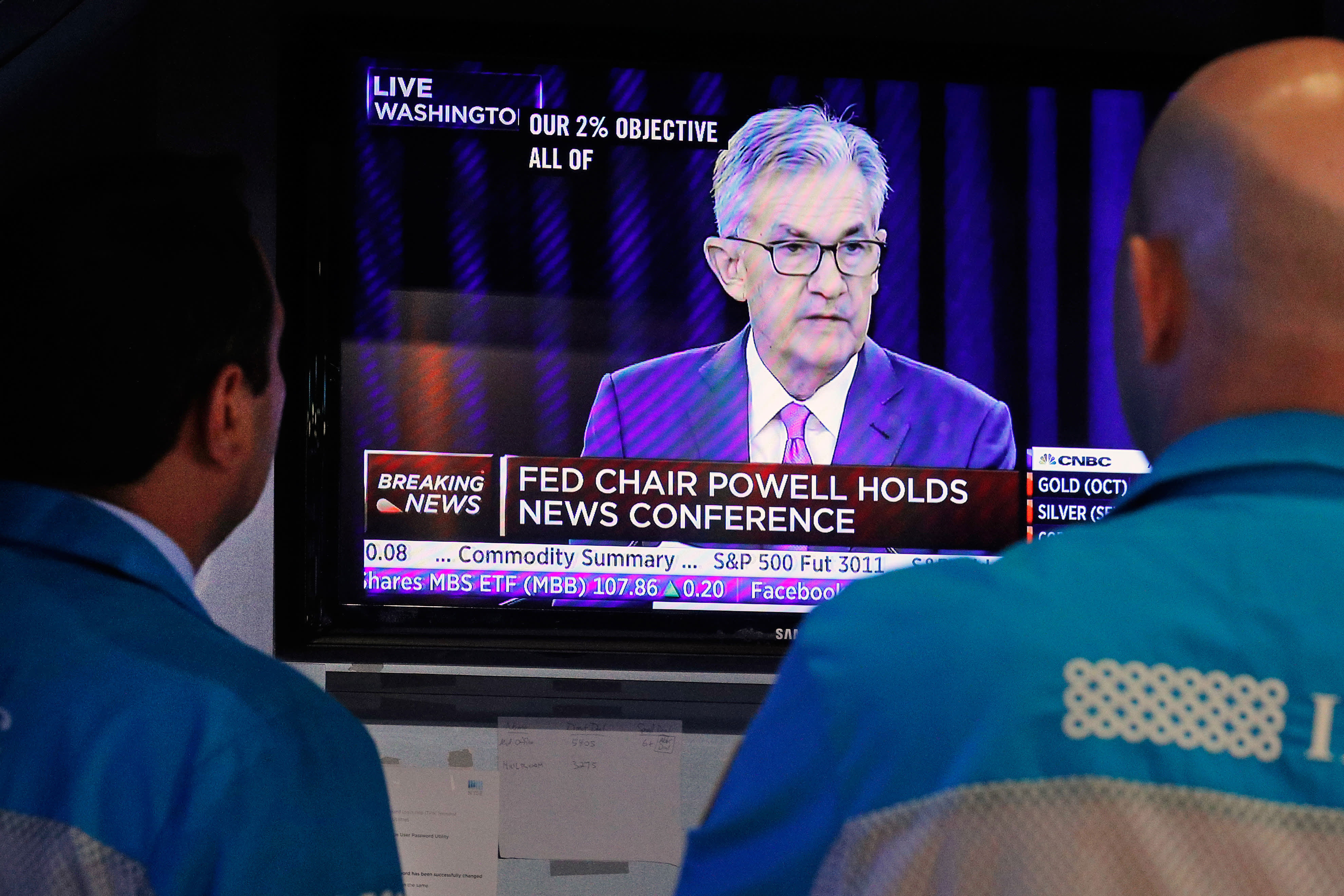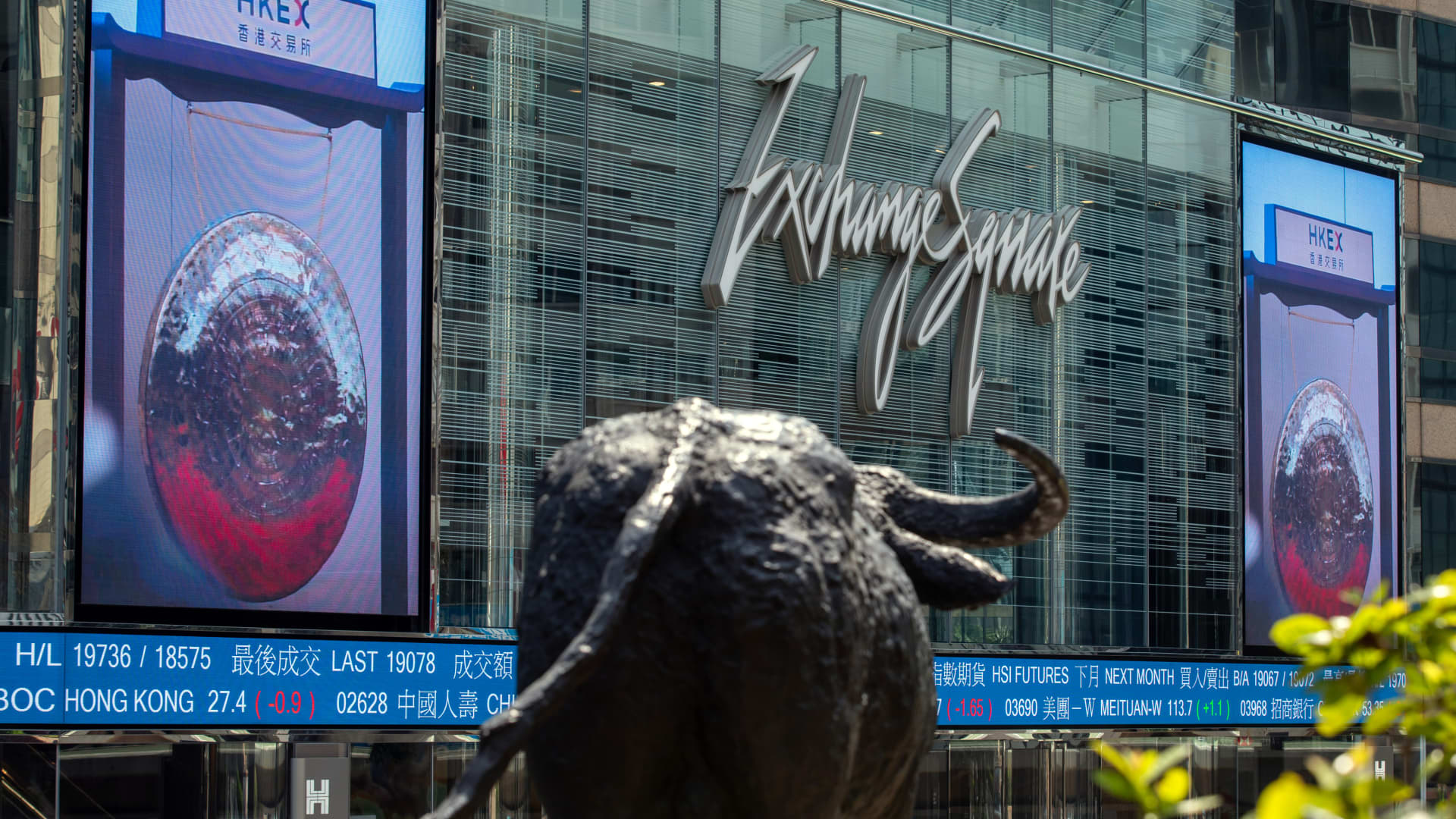U.S. officials address mounting tensions between U.S. and China during Munich Security Conference
Secretary of State Antony Blinken met with China's top diplomat, Wang Yi, on the margins of the Munich Security Conference.

US Secretary of State Antony Blinken speaks following a Memorandum of Understanding signing ceremony with South Korean Foreign Minister Park Jin in the Benjamin Franklin Room of the State Department in Washington, DC, on February 3, 2023.
Saul Loeb | AFP | Getty Images
U.S. officials addressed mounting tensions with China Sunday after Secretary of State Antony Blinken met with China's top diplomat, Wang Yi, to discuss China's high-altitude surveillance balloon and the nation's stance on sending "lethal aid" to Russia.
The U.S. military shot down a high-altitude Chinese balloon on Feb. 4, and Blinken told Wang that it was an "unacceptable violation of U.S. sovereignty and international law," a State Department spokesperson said in a statement Saturday. Blinken also warned of the "implications and consequences" if China provides material support to Russia, according to the statement.
The officials met on the margins of the Munich Security Conference, where leaders from around the world gathered to discuss geopolitical challenges.
Blinken said Sunday that "there's no doubt" the high-altitude balloon was attempting to engage in active surveillance.
"What is clear is that once the balloon was over the United States and flying basically west to east, it attempted to surveil very sensitive military sites. In some cases, it loitered or returned to them as it progressed east," he told NBC's "Meet the Press."
Blinken said he had a "very direct, very clear" conversation about the balloon with Wang, but that he did not receive a direct apology. Blinken said he thinks other countries "appreciate" the fact that the United States has "exposed" China's balloon program.
"More than 40 countries have had these balloons go over their territories," he told ABC's "This Week." "There's a real concern that I'm hearing here from other countries."
Reps. Michael McCaul, R-Texas, and Mike Turner, R-Ohio, are also at the Munich Security Conference, and they said that the Biden administration should be more open with the American public about what China's espionage plans were.
But despite the balloon, Turner said he thinks there is an opportunity for the two nations to return to normal dialogue.
"No one of course wants a Cold War," he told CNN's "State of the Union" Sunday. "What we want is a China that is not going to be an aggressor state."
Chinese aggression is also a concern in Russia's war against Ukraine. Blinken said the U.S. has information that suggests China is considering sending "lethal support" to Russia.
He told NBC there are "various kinds" of lethal aid that China is considering providing, including weapons. Blinken said China has already been aiding Russia in more diplomatic ways, but that sending lethal aid would be a significant escalation.
"It was important for me to share very clearly with Wang Yi that this would be a serious problem," Blinken told ABC.
Sen. Lindsey Graham, R-S.C., also appeared at the Munich Security Conference, and he told ABC that if China does provide Russia with lethal aid, the world needs to "come down hard" on China.
Graham said aiding Russia materially would be "the most catastrophic thing" that could happen to U.S.-China relations.
"To the Chinese: If you jump on the Putin train now, you're dumber than dirt," he said. "It would be like buying a ticket on the Titanic after you saw the movie. Don't do this."
Correction: This story has been updated to correctly indicate Wang Yi's surname.

 Troov
Troov 
























.jpeg&h=630&w=1200&q=100&v=a905e78df5&c=1)







